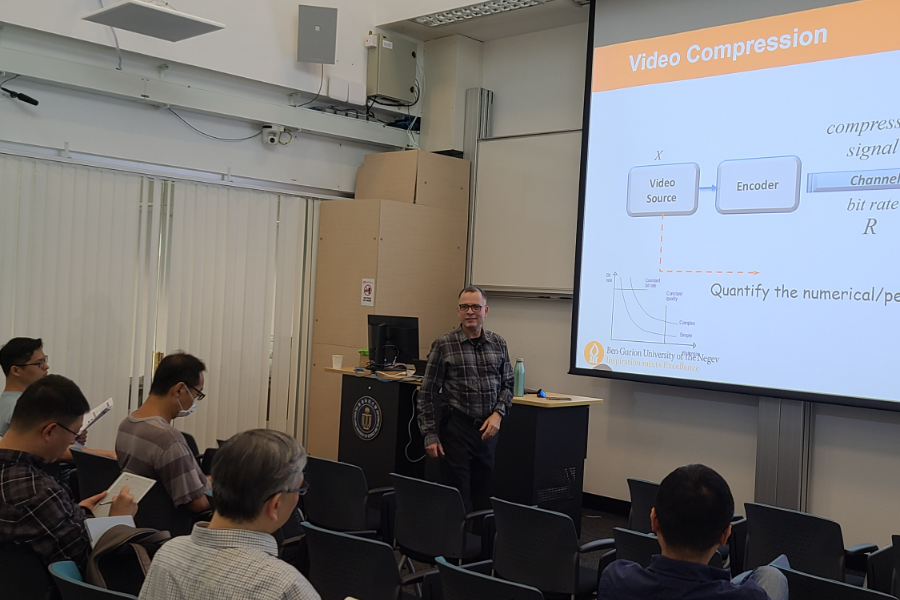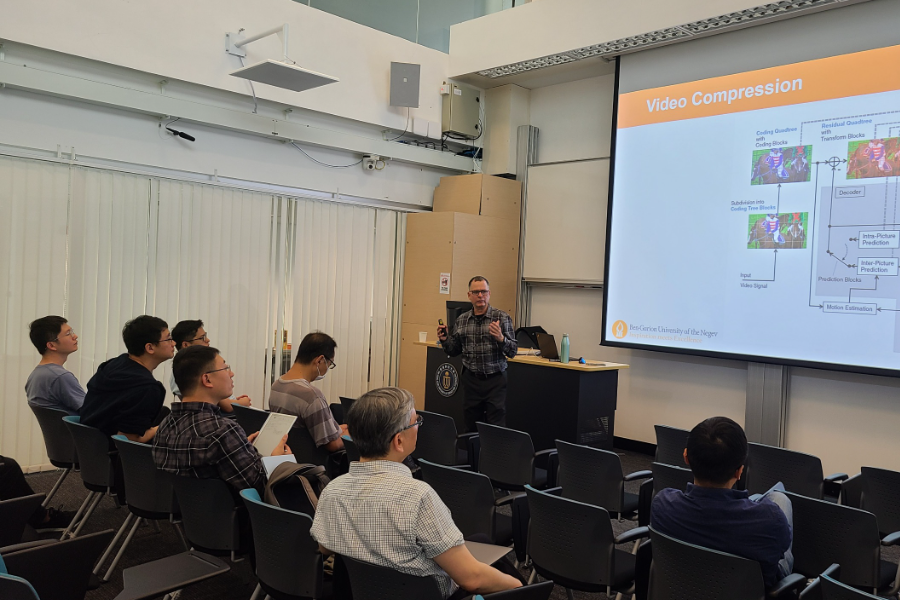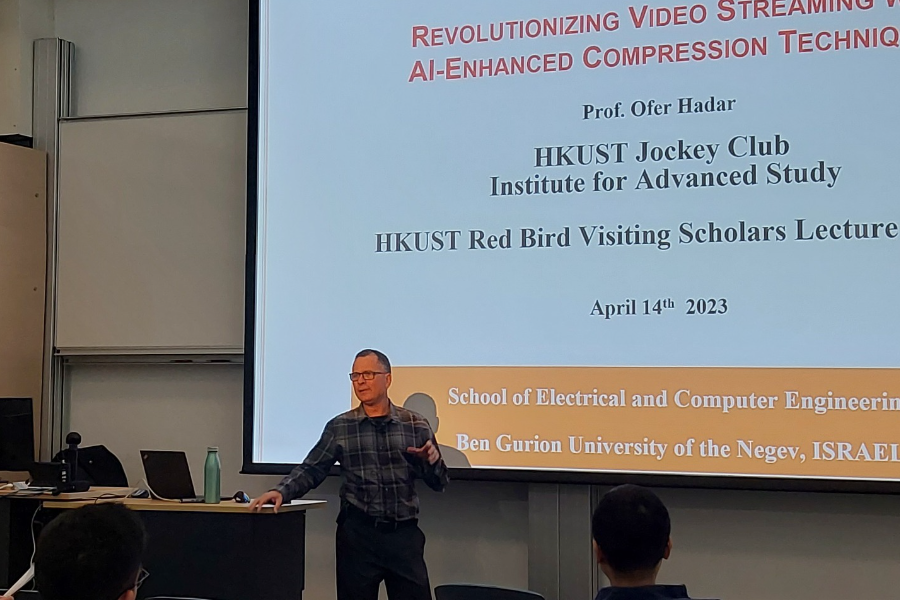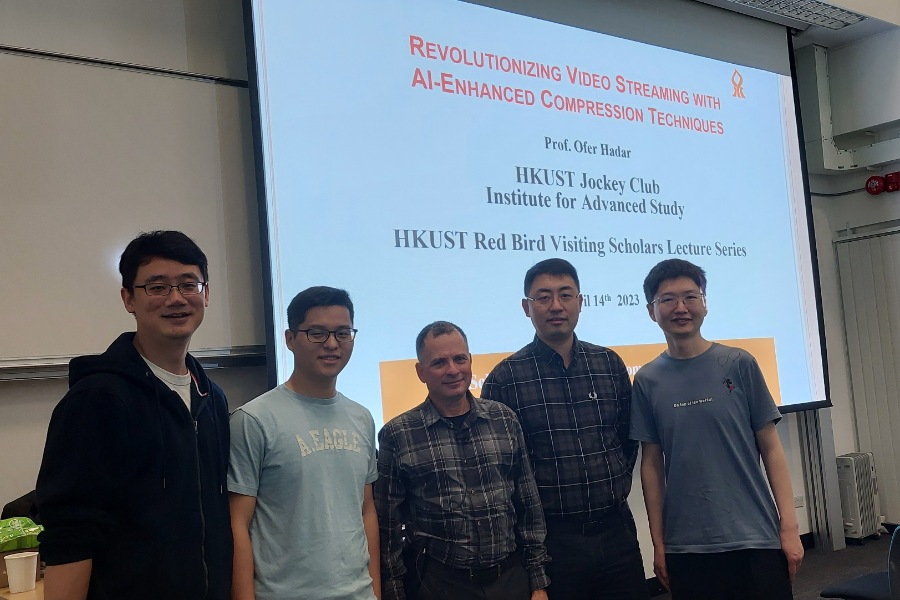Revolutionizing Video Streaming with AI-Enhanced Compression Techniques
Abstract
With the growing demand for high-quality video content, video compression has become an essential technology for enabling efficient video delivery. Traditional video codecs have made significant strides in reducing file sizes while maintaining good visual quality, but further improvements in compression efficiency are becoming increasingly challenging to achieve. This is where AI video compression comes in - by leveraging advanced machine learning algorithms, AI video compression techniques can further reduce video file sizes while maintaining or even enhancing visual quality. In this talk, the speaker will explore the next step in improving video codec efficiency through the use of AI-enhanced compression techniques. He will discuss the basic principles behind AI video compression, including how it works, what benefits it offers, and what challenges need to be addressed. He will also cover the latest developments in AI video compression research, including state-of-the-art algorithms, tools, and applications. He will focus in two different directions: (1) improving existing video codecs by performing better predictions that are incorporated within the same codec framework, and (2) holistic methods of end-to-end image/video compression schemes. The first approach is primarily focused on improving the Intra-Prediction algorithms, which are dominant for the spatial coding of the Keyframe (also referred to as I-Frame), a major contributor to bandwidth. It also considers alternatives for improving Inter-Prediction, and in particular, better prediction of the Motion Vectors (MVs), used to indicate the temporal displacement of image blocks between consecutive video frames. Holistic approaches consider the optimization of a global parameter, such as Rate-Distortion (RD) tradeoff, next frame prediction, and next frame facial restoration using key points (proposed by NVIDIA for video conferencing applications). Another approach suggests using Region of Interest (ROI) to selectively compress streams, such that more important frame regions are delivered with higher quality at the expense of background and other, less important regions in the frame, therefore contributing to improved overall compression. In this talk the speaker will review the different approaches and present some results from his research group in various projects, such as using ROI compression based on AI in Teleoperation driving for autonomous vehicles. Finally, he will highlight some of the key use cases for AI video compression, such as online video streaming, video conferencing, and discuss how these applications can benefit from this emerging technology.
About the Speaker
Prof. Ofer HADAR received his BS, MS (cum laude) and PhD (with support of the Clore Fellowship), all in Electrical and Computer Engineering, from the Ben-Gurion University of the Negev, Israel in 1990, 1992, and 1997 respectively. In 1996-1997, he was with the College of Optics and Photonics (CREOL) at the University of Central Florida as a Research Visiting Scientist. He joined the Technion-Israel Institute of Technology in 1997 as a Post-doctoral Fellow in the Department of Computer Science. In 1999, he returned to his alma mater, Ben-Gurion University of the Negev and is currently a Professor of Communication Systems Engineering.
Prof. Hadar’s research interests include image compression, advanced video coding, H.264, SVC, HECV, transmission of video over IP networks, data hiding and cyber in compressed video streaming. In the last few years, his main research topics involve deep learning in various funded projects by competitive funding agencies, in a variety of hot and emerging research areas such as autonomous cars, precision agriculture, tele-medicine: enhancing robotic physiotherapeutic treatments using machine learning, encrypted traffic analysis and adversarial AI. He is an Associate Editor of the journal, Optical Engineering and a Senior Member of IEEE and SPIE.
For Attendees' Attention
Seating is on a first come, first served basis.






